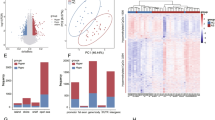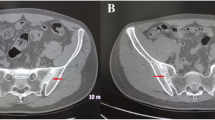Abstract
Juvenile spondyloarthritis (jSpA) is a complex disease with both genetic and environmental factors contributing to etiology. Multiple studies have shown that epigenetic mechanisms could link the environment and gene expression and thus provide a potential explanation for external contribution in the pathogenesis of numerous diseases, including rheumatic. Previously obtained gene signatures in jSpA patients revealed distinctive expression of important immune-related genes, though the mechanism(s) responsible for those alterations remained unknown. The purpose of this study was to evaluate the methylation levels of the TLR4, CXCR4, NLRP3, and PTPN12 gene promoter, along with the expression of several non-coding microRNAs (miR-150, miR-146a, miR-181a, and miR-223) in jSpA patients. Peripheral blood samples were obtained from 19 patients newly diagnosed with jSpA according to ILAR classification criteria for enthesitis-related arthritis (ErA) and seven gender- and age-matched subjects without any symptoms or signs of inflammatory disease. The expression of specific microRNAs was analyzed using qRT-PCR with predeveloped microRNA assays. DNA promoter region methylation status of selected genes was assessed by methylated DNA immunoprecipitation (MeDIP) analysis. Fold enrichment of immunoprecipitated DNA differed significantly for NLRP3 promoter site, while the expression analysis of selected microRNAs showed no significant difference in fold change between jSpA patients and healthy controls. The results indicated that epigenetic modifications in the initial phase of the disease could be responsible for some of the expression alterations in jSpA patients. Since NLRP3 has a crucial role in inflammasome assembly and inflammasomes have been shown to shape microbiota, it is tempting to assume that dysbiosis in jSpA patients can at least partially be explained by reduced NLRP3 expression due to hypermethylation, stressing for the first time the epigenetic contribution to jSpA pathophysiology.



Similar content being viewed by others
References
Harjaček M, Lamot L, Tambić Bukovac L, Vidović M, Joos R. Juvenile Spondyloarthritis. In: Harjaček M, editor. Challenges in rheumatology; 2011.
Nigrovic PA, Raychaudhuri S, Thompson SD. Genetics and the classification of arthritis in adults and children. Arthritis Rheum. 2017;70:7–17. https://doi.org/10.1002/art.40350.
Gmuca S, Weiss PF. Juvenile spondyloarthritis. Curr Opin Rheumatol. 2015;27(4):364–72. https://doi.org/10.1097/BOR.0000000000000185.
Tse SM, Laxer RM. New advances in juvenile spondyloarthritis. Nat Rev Rheumatol. 2012;8(5):269–79. https://doi.org/10.1038/nrrheum.2012.37.
Robinson PC, Brown MA. Genetics of ankylosing spondylitis. Mol Immunol. 2014;57(1):2–11. https://doi.org/10.1016/j.molimm.2013.06.013.
Reveille JD. Genetics of spondyloarthritis--beyond the MHC. Nat Rev Rheumatol. 2012;8(5):296–304. https://doi.org/10.1038/nrrheum.2012.41.
Barnes MG, Aronow BJ, Luyrink LK, Moroldo MB, Pavlidis P, Passo MH, et al. Gene expression in juvenile arthritis and spondyloarthropathy: pro-angiogenic ELR+ chemokine genes relate to course of arthritis. Rheumatology (Oxford). 2004;43(8):973–9. https://doi.org/10.1093/rheumatology/keh224.
Barnes MG, Grom AA, Thompson SD, Griffin TA, Pavlidis P, Itert L, et al. Subtype-specific peripheral blood gene expression profiles in recent-onset juvenile idiopathic arthritis. Arthritis Rheum. 2009;60(7):2102–12. https://doi.org/10.1002/art.24601.
Myles A, Tuteja A, Aggarwal A. Synovial fluid mononuclear cell gene expression profiling suggests dysregulation of innate immune genes in enthesitis-related arthritis patients. Rheumatology (Oxford). 2012;51(10):1785–9. https://doi.org/10.1093/rheumatology/kes151.
Lamot L, Borovecki F, Tambic Bukovac L, Vidovic M, Perica M, Gotovac K, et al. Aberrant expression of shared master-key genes contributes to the immunopathogenesis in patients with juvenile spondyloarthritis. PLoS One. 2014;9(12):e115416. https://doi.org/10.1371/journal.pone.0115416.
Kato M, Yasuda S, Atsumi T. The role of genetics and epigenetics in rheumatic diseases: are they really a target to be aimed at? Rheumatol Int. 2018;38(8):1333–8. https://doi.org/10.1007/s00296-018-4026-0.
Chavez-Valencia RA, Chiaroni-Clarke RC, Martino DJ, Munro JE, Allen RC, Akikusa JD, et al. The DNA methylation landscape of CD4(+) T cells in oligoarticular juvenile idiopathic arthritis. J Autoimmun. 2018;86:29–38. https://doi.org/10.1016/j.jaut.2017.09.010.
Egger G, Liang G, Aparicio A, Jones PA. Epigenetics in human disease and prospects for epigenetic therapy. Nature. 2004;429(6990):457–63. https://doi.org/10.1038/nature02625.
Illingworth RS, Bird AP. CpG islands--‘a rough guide’. FEBS Lett. 2009;583(11):1713–20. https://doi.org/10.1016/j.febslet.2009.04.012.
Bird AP. CpG-rich islands and the function of DNA methylation. Nature. 1986;321(6067):209–13. https://doi.org/10.1038/321209a0.
Kronfol MM, Dozmorov MG, Huang R, Slattum PW, McClay JL. The role of epigenomics in personalized medicine. Expert Rev Precis Med Drug Dev. 2017;2(1):33–45. https://doi.org/10.1080/23808993.2017.1284557.
Winter J, Jung S, Keller S, Gregory RI, Diederichs S. Many roads to maturity: microRNA biogenesis pathways and their regulation. Nat Cell Biol. 2009;11(3):228–34. https://doi.org/10.1038/ncb0309-228.
Kim VN, Han J, Siomi MC. Biogenesis of small RNAs in animals. Nat Rev Mol Cell Biol. 2009;10(2):126–39. https://doi.org/10.1038/nrm2632.
Petty RE, Southwood TR, Baum J, Bhettay E, Glass DN, Manners P, et al. Revision of the proposed classification criteria for juvenile idiopathic arthritis: Durban, 1997. J Rheumatol. 1998;25(10):1991–4.
Zhen Y, Zhang H. NLRP3 inflammasome and inflammatory bowel disease. Front Immunol. 2019;10:276. https://doi.org/10.3389/fimmu.2019.00276.
Gracey E, Dumas E, Yerushalmi M, Qaiyum Z, Inman RD, Elewaut D. The ties that bind: skin, gut and spondyloarthritis. Curr Opin Rheumatol. 2019;31(1):62–9. https://doi.org/10.1097/BOR.0000000000000569.
Jo EK, Kim JK, Shin DM, Sasakawa C. Molecular mechanisms regulating NLRP3 inflammasome activation. Cell Mol Immunol. 2016;13(2):148–59. https://doi.org/10.1038/cmi.2015.95.
Pellegrini C, Antonioli L, Lopez-Castejon G, Blandizzi C, Fornai M. Canonical and non-canonical activation of NLRP3 inflammasome at the crossroad between immune tolerance and intestinal inflammation. Front Immunol. 2017;8:36. https://doi.org/10.3389/fimmu.2017.00036.
Wang J, Dong R, Zheng S. Roles of the inflammasome in the gutliver axis (review). Mol Med Rep. 2019;19(1):3–14. https://doi.org/10.3892/mmr.2018.9679.
Forbes JD, Van Domselaar G, Bernstein CN. The gut microbiota in immune-mediated inflammatory diseases. Front Microbiol. 2016;7:1081. https://doi.org/10.3389/fmicb.2016.01081.
Ballestar E, Li T. New insights into the epigenetics of inflammatory rheumatic diseases. Nat Rev Rheumatol. 2017;13(10):593–605. https://doi.org/10.1038/nrrheum.2017.147.
Ciechomska M, O'Reilly S. Epigenetic modulation as a therapeutic prospect for treatment of autoimmune rheumatic diseases. Mediat Inflamm. 2016;2016:9607946. https://doi.org/10.1155/2016/9607946.
Tano N, Kim HW, Ashraf M. microRNA-150 regulates mobilization and migration of bone marrow-derived mononuclear cells by targeting Cxcr4. PLoS One. 2011;6(10):e23114. https://doi.org/10.1371/journal.pone.0023114.
Quaranta MT, Olivetta E, Sanchez M, Spinello I, Paolillo R, Arenaccio C, et al. miR-146a controls CXCR4 expression in a pathway that involves PLZF and can be used to inhibit HIV-1 infection of CD4(+) T lymphocytes. Virology. 2015;478:27–38. https://doi.org/10.1016/j.virol.2015.01.016.
Sun X, Charbonneau C, Wei L, Chen Q, Terek RM. miR-181a targets RGS16 to promote chondrosarcoma growth, angiogenesis, and metastasis. Mol Cancer Res. 2015;13(9):1347–57. https://doi.org/10.1158/1541-7786.MCR-14-0697.
Bauernfeind F, Rieger A, Schildberg FA, Knolle PA, Schmid-Burgk JL, Hornung V. NLRP3 inflammasome activity is negatively controlled by miR-223. J Immunol. 2012;189(8):4175–81. https://doi.org/10.4049/jimmunol.1201516.
Wang J, Bai X, Song Q, Fan F, Hu Z, Cheng G, et al. miR-223 inhibits lipid deposition and inflammation by suppressing toll-like receptor 4 signaling in macrophages. Int J Mol Sci. 2015;16(10):24965–82. https://doi.org/10.3390/ijms161024965.
Jagoo M, He F, Peng J, Yin F. Acute meningitis in rats is associated with decreased levels of miR132 and miR146a. Cent Eur J Immunol. 2014;39(3):316–22. https://doi.org/10.5114/ceji.2014.45941.
He YZ, Lu RF, Zhu C, Hua JY. Qian Five Rhinoceros Gindeng (QFRG) protects against development of immune thrombocytopenia via miR-181a inhibition of TLR-4 expression. Int J Clin Exp Med. 2015;8(5):6986–93.
Disclaimer
The funders had no role in study design, data collection and analysis, decision to publish, or preparation of the manuscript.
Funding
This work was completely funded by the Ministry of Science, Education and Sports of the Republic of Croatia by grant 108-1083107-0351 (www.mzos.hr).
Author information
Authors and Affiliations
Corresponding author
Ethics declarations
Ethical Approval
The study protocol was in compliance with the Helsinki Declaration and was approved by the Sestre milosrdnice University Hospital Center Institutional Review Board (IRB).
Informed Consent
After being informed of the aims and procedures of the study, parents of all the participants, as well as the children older than 12 years, signed an informed consent prior to blood collection.
Conflict of Interest
The authors declare that they have no conflict of interest.
Additional information
Publisher’s Note
Springer Nature remains neutral with regard to jurisdictional claims in published maps and institutional affiliations.
This article is part of the Topical Collection on Medicine
Rights and permissions
About this article
Cite this article
Lamot, L., Blažeković, A., Jerčić, K.G. et al. Epigenetic Alterations in Juvenile Spondyloarthritis Patients: a Preliminary Study of Selected Genes Promoter Methylation and Silencing. SN Compr. Clin. Med. 1, 496–501 (2019). https://doi.org/10.1007/s42399-019-00070-9
Accepted:
Published:
Issue Date:
DOI: https://doi.org/10.1007/s42399-019-00070-9




